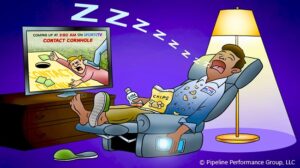“It is estimated that 50 to 70 million Americans suffer from a disorder of sleep and wakefulness, hindering daily functioning and adversely affecting health and longevity. The cumulative long-term effects of sleep loss and sleep disorders have been associated with a wide range of deleterious health consequences including an increased risk of hypertension, diabetes, obesity, depression, heart attack, and stroke.” (American Sleep Disorders and Sleep Deprivation: An Unmet Public Health Problem, National Academies Press, 2006)
I am one of those Americans with a sleep disorder, sleep apnea to be precise. I was diagnosed in the 1990s and have been using a Continuous Positive Airway Pressure (CPAP) device since about 2000. Like many people, it took me a few years to understand the value of sleeping through the night instead of stopping breathing hundreds of time during the night and risking death from an obstructed airway. Then I started using the CPAP device. I still remember how much more energy I had the first morning. I travel almost every week and the CPAP device goes with me.
There are many types of sleep disorders. The most common are:
- Sleep Apnea (sleep related breathing disorders)
- Insomnia
- Restless Leg Syndrome/Periodic Limb Movements During Sleep
- Narcolepsy (excessive sleepiness)
- Shift Work and Circadian Rhythm Disorders
We recommend that shiftworkers should get an annual physical and tell their doctor that they work rotating shifts. Any of us who are having difficulty sleeping should consult a medical professional. There are sleep clinics in most communities with doctor who specialize in sleep medicine. Many of these doctors are affiliated with the American Academy of Sleep Medicine. Treatments for sleep disorders are usually covered by health insurance. Make an appointment today and take care of your health.
If any of these items below describe you, you might have a sleep disorder.
- You are told that you snore loudly and often.
- You are told that you stop breathing or sound as though you are having difficulty catching your breath when asleep.
- You find yourself becoming sleepy or actually falling asleep when performing your daily activities, especially those that are sedentary, like reading, watching TV, and driving.
- You find yourself having trouble falling asleep regularly.
- You wake up frequently during the night or during the daytime, if you work rotating shifts.
- You experience a nervous, creeping, or tingling feeling in your legs when trying to sleep.
- Your sleep is regularly interrupted due to any of these reasons:
- Gastrointestinal distress,
- A need to urinate,
- Acid reflux,
- Pain,
- Night terrors, or
- An uncontrollable environment (too much light or noise in the room, or an uncomfortable temperature level).
- You are a shiftworker and experience the symptoms of circadian rhythm disorder (night shift lag which is similar to jet lag).




